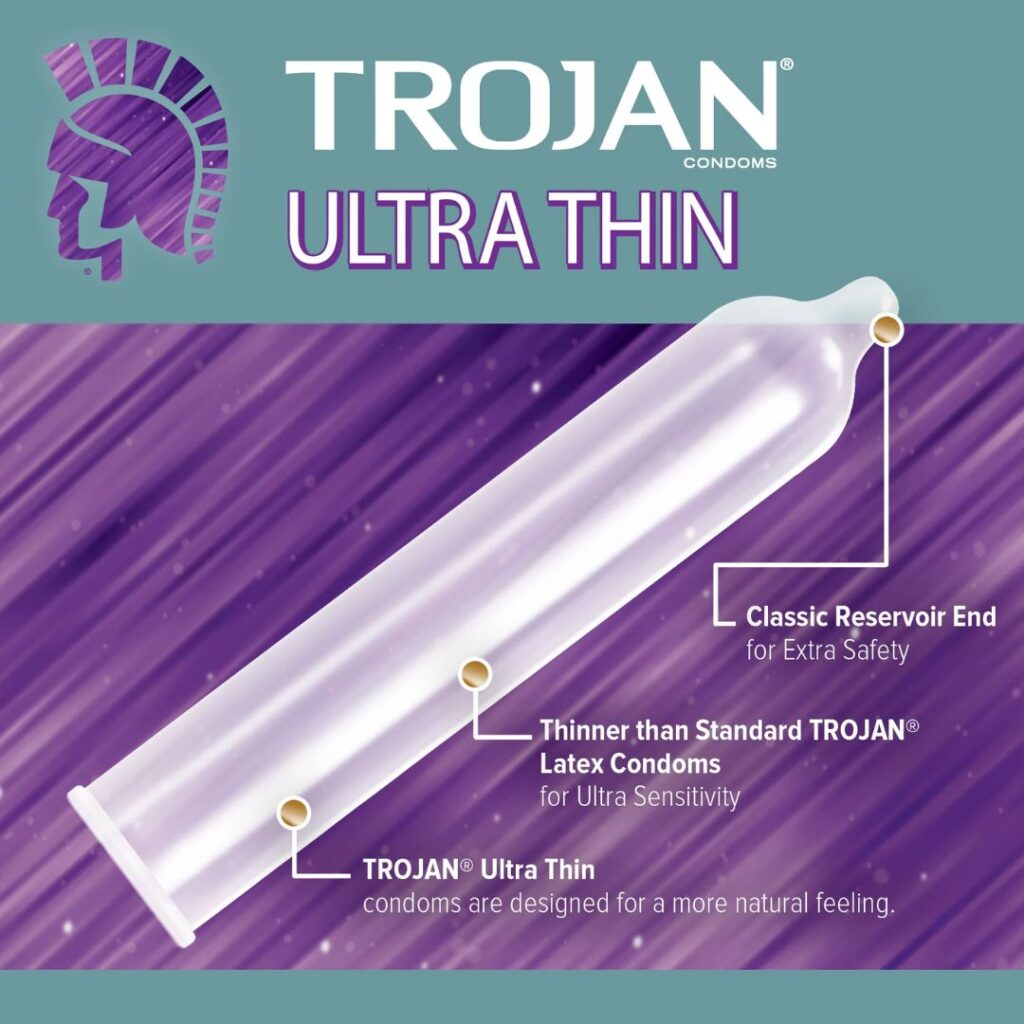
Roger-Luc Chayer (Image : Trojan)
A major class action was recently filed at the international level against the Trojan condom brand and the companies Church & Dwight Co. and Church & Dwight Canada Corp., in connection with one of the ingredients used in the manufacturing of their condoms, PFAS, which are alleged to be toxic.
What are PFAS?
PFAS, or per- and polyfluoroalkyl substances, are a large family of synthetic chemical compounds that have been used since the 1940s for their waterproof, non-stick, and heat-resistant properties. They are found in a wide range of industrial and consumer products, and their extreme stability makes them virtually indestructible in the environment. This persistence has earned them the nickname “forever chemicals.”
PFAS accumulate in soil, water, wildlife, and even in the human body, raising serious public health concerns. Studies have linked prolonged exposure to certain types of PFAS with various health issues, including hormonal disorders and certain cancers. Today, several countries, including Canada and members of the European Union, are working to limit their use and monitor their presence in drinking water.
Why a class action?
In its Canadian class action filing, the plaintiffs’ lawyers, the Actis Law Group, stated:
“ACTIS LAW GROUP is lead counsel in the Canada-wide class action against Church & Dwight Canada Corp. and Church & Dwight Co., Inc. for allegedly manufacturing and selling Trojan brand condoms containing toxic chemicals known as ‘forever chemicals,’ which have been linked to numerous health problems, including cancer. These chemicals are per- and polyfluoroalkyl substances, also known as PFAS.
PFAS are referred to as ‘forever chemicals’ because they do not break down easily in the environment or the human body. Many PFAS chemicals can persist in our bodies for years, even decades.
PFAS have been associated with negative health effects including increased cholesterol, low birth weight, reduced antibody response to vaccines, cardiovascular disease, obesity, diabetes, reduced fertility and reproductive issues, thyroid disorders, immune system damage, allergies, high blood pressure, and certain types of cancer, notably kidney and testicular cancer.
The consumer advocacy group Mamavation conducted a consumer-based study and decided to test 25 condoms and 4 lubricants from 19 brands in an EPA-certified lab to detect indicators of PFAS or ‘forever chemicals.’ The results revealed:
– 14% of all condoms and lubricants tested showed indications of PFAS. 4 detections out of 29 reproductive health products (condoms and lubricants) had levels of organic fluorine above 10 parts per million (ppm), according to our lab.
– Broken down by category, 12% of condoms tested showed signs of PFAS. More specifically, 3 out of 25 condoms had detectable levels of organic fluorine above 10 ppm.
– 25% of lubricants showed signs of PFAS. Specifically, 1 out of 4 lubricants tested had detectable levels of organic fluorine above 10 ppm.
– Organic fluorine levels, a marker of PFAS, ranged from 13 ppm to 68 ppm.
This is a major issue, as condoms come into contact with some of the most sensitive areas of the human body, for both men and women. This situation will therefore require the immediate elimination of these chemical substances.
The tests revealed that Trojan Ultra Thin condoms for Ultra Sensitivity contained 13 parts per million (ppm) of organic fluorine.”
Why then a withdrawal?
The allegations are serious and clearly concerning from a public health standpoint, according to the lawyers leading the case. Why, in this context, would such a procedure be withdrawn?
A judicial withdrawal is the act by which a party in a lawsuit voluntarily decides to abandon all or part of their claim before the court. This withdrawal can occur at any point during the proceedings, often when a settlement is reached out of court or when the party no longer sees value in continuing. The withdrawal generally ends the legal dispute between the parties on the issues concerned, unless stated otherwise. It can be conditional or final, and in some cases, requires the opposing party’s consent. Once accepted, it has the effect of a judgment terminating the action.
In their withdrawal notice published on June 23, 2025, the lawyers offered few comments:
On October 21, 2024, the Plaintiffs
filed a class action before the
Superior Court of Quebec, District of
Montreal, under file number 500-
06-001338-249, on behalf of the
following group:
All individuals residing in
Quebec who purchased or used
Trojan Ultra Thin condoms for
ultra sensitivity (the “Trojan
condoms”) or any other group to
be determined by the Court;
This notice is to inform you that as of
June 20, 2025, the Superior Court of
Quebec has authorized the
Plaintiffs to withdraw from the
proposed class action, thereby
terminating the proceedings;
PLEASE BE ADVISED that now that
the Court has authorized the
withdrawal, the proposed class
action is over. The prescription
periods are no longer suspended.
Therefore, members of the group
will have to file their own legal
actions if they so wish.
In Quebec, the ordinary civil prescription period is generally three years. This period begins when the individual becomes aware of the right they wish to assert, for example when harm occurs or is discovered. This means that, unless another period is specified by law, any action to assert a personal right or a real movable right must be filed within that time frame, or the right may be permanently lost.
Gay Globe contacted the lawyers responsible for the class action in Quebec and Canada to understand the reasons behind this surprising withdrawal. Here is their response: “We have decided to withdraw from the class action for several reasons, mainly because we no longer believed it had a strong chance of success. This is partly due to its abandonment in the United States, partly because of the enormous task of collecting medical records and the associated costs, as well as a few other factors.“
ADVERTISING
